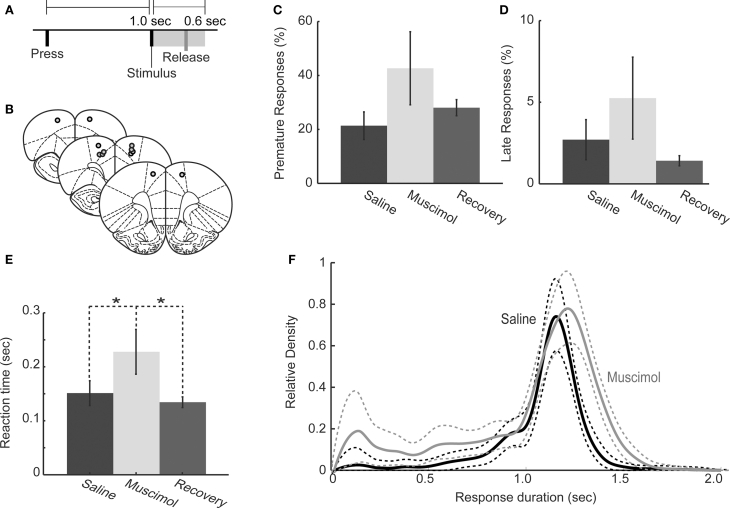Figure 3.
Behavioral performance in one-delay simple RT task following muscimol inactivation of RFA. (A) Task design: Rats pressed on a lever to initiate a trial and maintained the press until a tone was presented after a delay of 1.0 s. Lever releases within 600 ms of the tone were rewarded with 20% sucrose. Releases before the stimulus or more than 600 ms after the stimulus were punished by time-out. (B) Cannulae were implanted at locations that elicited discrete forelimb movements via intracranial microstimulation. Images were adapted from Paxinos and Watson (1998). (C,D) Rats (n = 6) with bilateral infusions of muscimol (0.5 μl of 1.0 μg/μl) did not show increased premature responding (C: P > 0.05 by rmANOVA) or late responding (D: P > 0.05 by rmANOVA). (E) Geometric mean RTs (error bars representing geometric absolute deviation) were significantly longer (paired t-test, P < 0.01) under muscimol than in saline and recovery sessions. (F) Distributions of response duration for saline and muscimol infusions showed that rats held down the lever for a longer period of time during RFA inactivation, i.e., there was a rightward shift in distribution (rmANOVA: P < 0.01).

